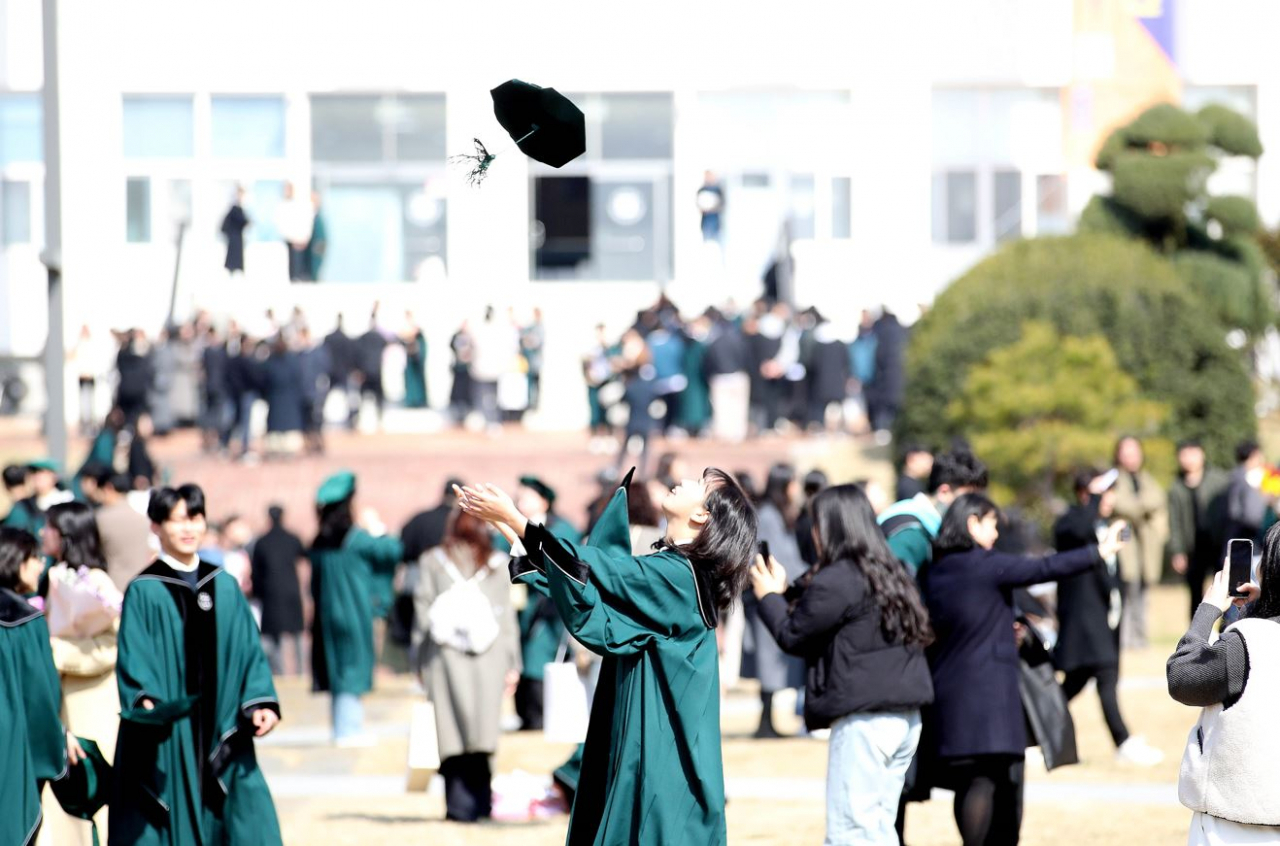University ranking hierarchy leads to wage gap later in life: study
By Yoon Min-sikPublished : Feb. 27, 2024 - 16:58

Graduates of universities with higher admission requirements make as much as 50 percent more than the graduates of lower-ranked universities, a study by a state-run think-tank showed Tuesday.
In the study released by the Korea Development Institute, researchers sorted South Korean universities into five groups based on the grades they required in the state-run college entrance exam Suneung. Schools in group one required the lowest Suneung grades while group five schools required the highest grades to enter.
They found that the wage gap between the graduates of universities in group five and their group one counterparts widened as they got older. Those who went to group five universities made an average of 25 percent more than graduates from group one between the ages of 25 and 29, 34 percent more between the ages 30 of 34, and 46 percent more between the age of 35 and 39.
The income disparity peaked at 40-44, with the group five graduates making 51 percent more than their group one counterparts. The gap narrowed in the higher age ranges, with 33 percent at age 45-49, 10 percent at 50-54, and just 1 percent when the workers are aged between 55 and 59.
South Korean law states that the minimum retirement age for employees should be 60, but allows each employer to set their own specific retirement age for their employees.
"It was found that graduates of upper-level universities had the edge (over lower-ranked schools) in not only wages, but also in competition when it comes to being hired by large corporations, getting permanent jobs, and having longer careers in general," the research said.
Koh Young-sun, the senior researcher of the KDI, said the wage gap leads to excessive competition in college admissions and an equally excessive amount of spending in the private education sector. Last year's report by Statistics Korea showed that South Koreans spent a total of 26 trillion won ($19.5 billion) on private education, marking an all-time high for the second straight year.
"There is a gap between children from wealthy families and those from families who are not wealthy, which affects college admissions and could potentially affect the wages (the graduates earn) throughout their lives. If such an inheritance of wealth through education persists, our society could become less healthy," he said.




















